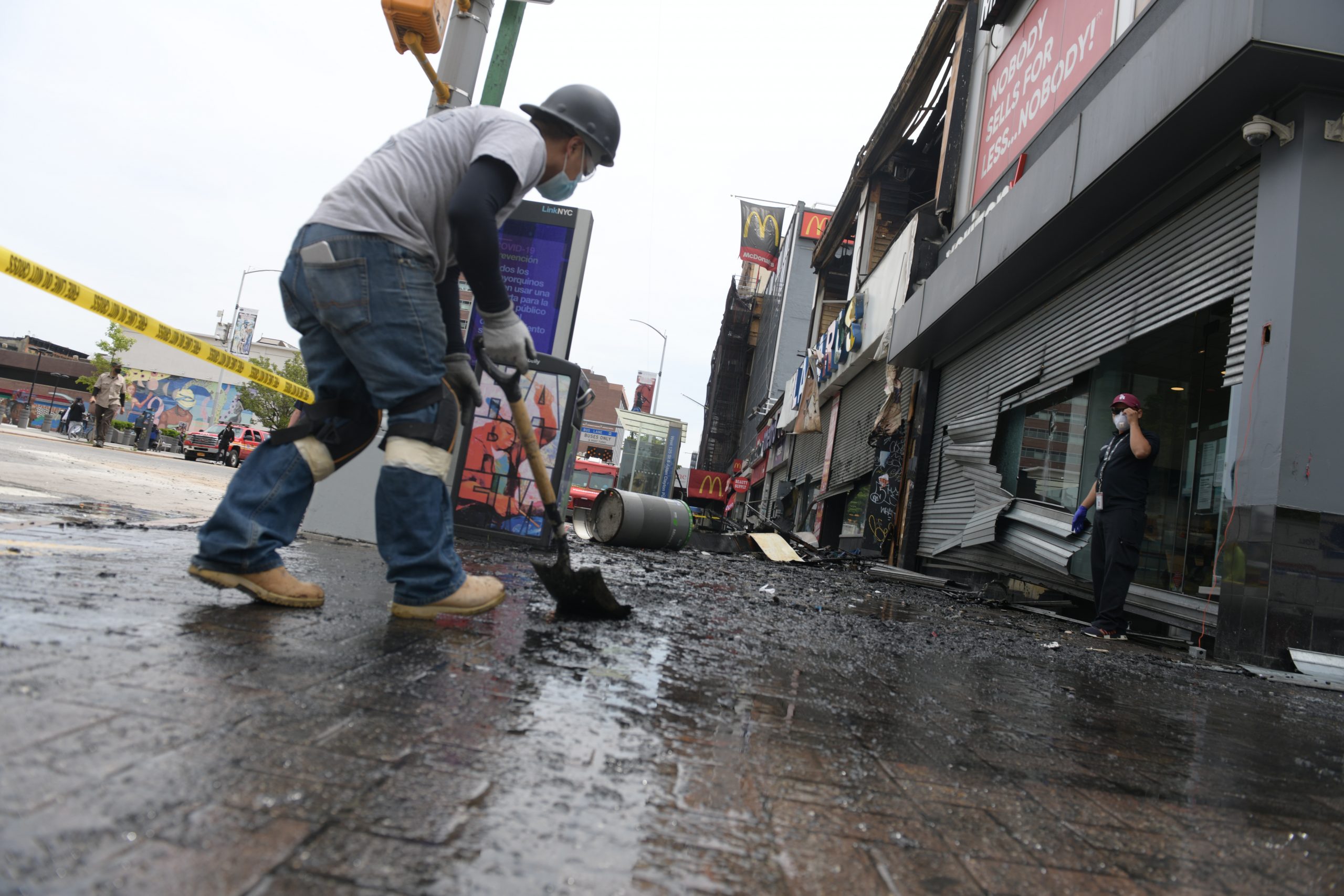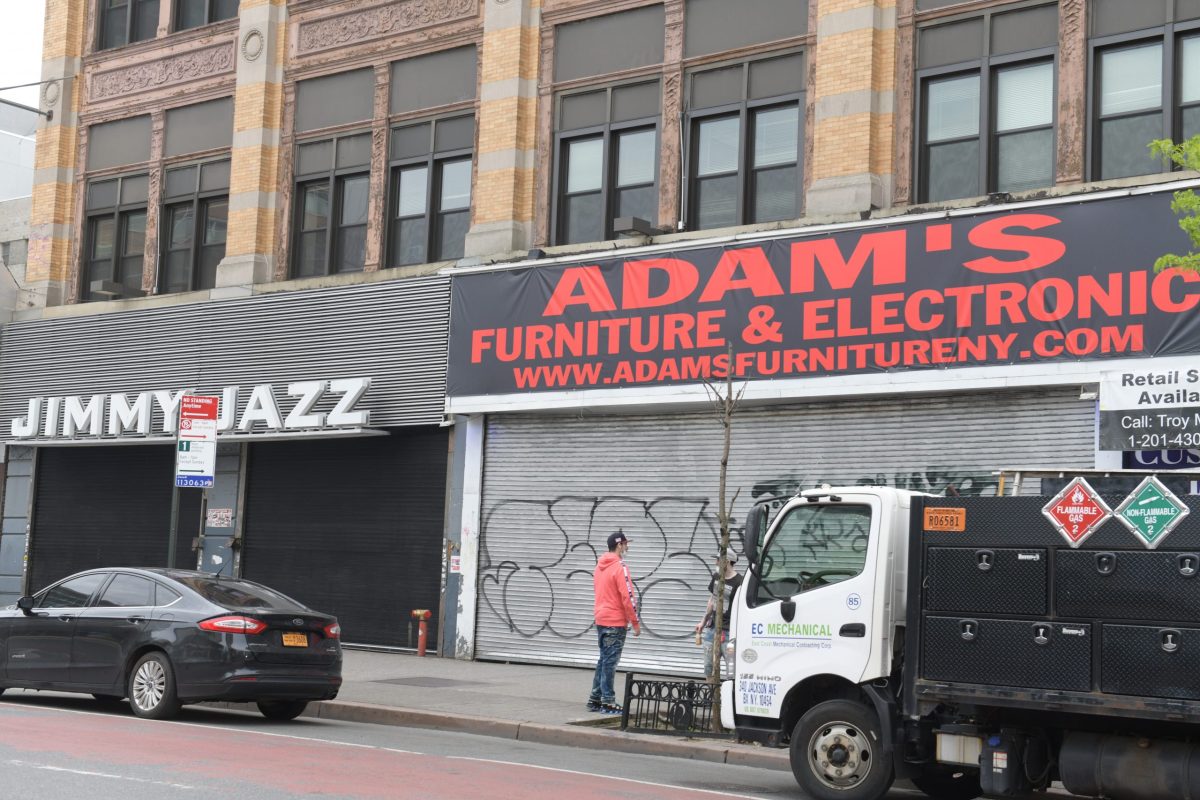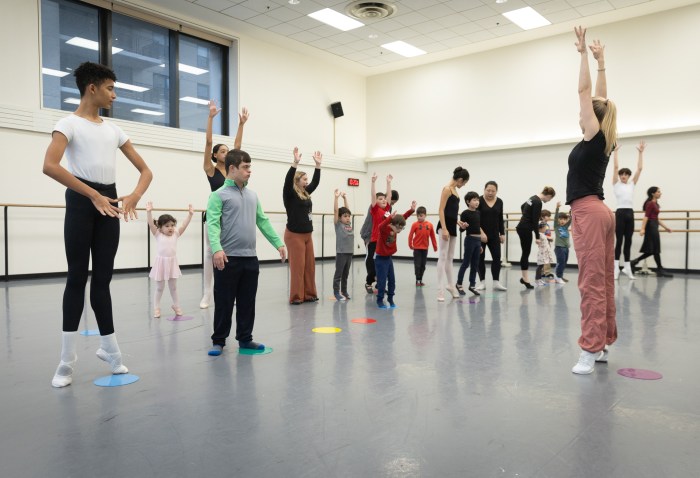This has been an especially tough week for Harlem during a very tough time in its history.
Businesses remain closed due to COVID-19, a massive fire destroyed a major clothing retailer and damaged several other businesses on Sunday, and a man was shot to death on the 125th Street corridor early Wednesday morning.
The situation is dire and officials say they expect to lose 40% of the businesses in Harlem, including the revitalized 125th Street retail corridor. Leaders blame racial disparity and economic discrimination for their eventual demise.
The Harlem community within three ZIP codes registered a total of 346 deaths from complications of the coronavirus. Thousands of residents there were infected with the contagion, adding to the suffering of that neighborhood.
But tough times have hit Harlem before — and the neighborhood’s business leaders are determined to save the business district and refuse to allow decline.
The current situation, for some, echoes the disastrous days of the 1970s when most of the stores on 125th Street and surrounding community were either vacant or burnt out, and the area was considered a no-man’s land.
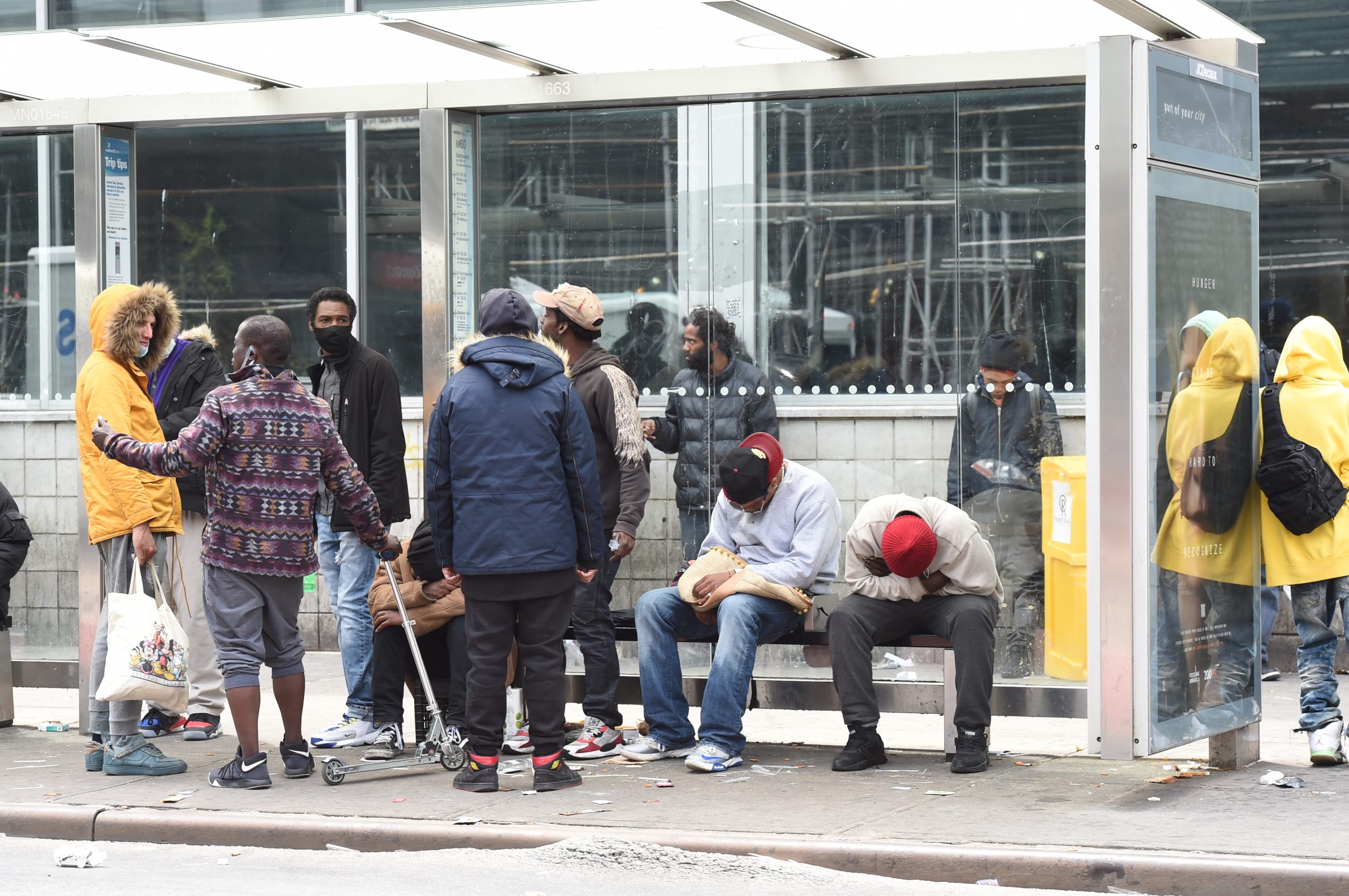
Leading the fight for the Harlem community is Lloyd Williams, the president and CEO of the Greater Harlem Chamber of Commerce. Williams is working the phone constantly to find ways to maintain businesses in the community.
But he said the tide is against them and expects to lose many of retail businesses in Harlem to the COVID-19 economic shut-down.
“That which is happening with the business communities, particularly the community of color throughout the city of New York, whether it’s South Jamaica, Bedford-Stuyvesant, South Bronx or Harlem, this pandemic will hit us the hardest,” Williams said. “Most of our small businesses have been deemed not necessary, therefore, this has led to massive unemployment in our community. And therefore, our customer base and disposable income is not here.”
Williams is concerned that businesses have been closed now for close to three months, and some of those businesses have not paid any rent because they have no income. He says if they are able to open soon, it will take “many months for most businesses to get back where they were.”
But other businesses are “marginal” and will fail, he added.
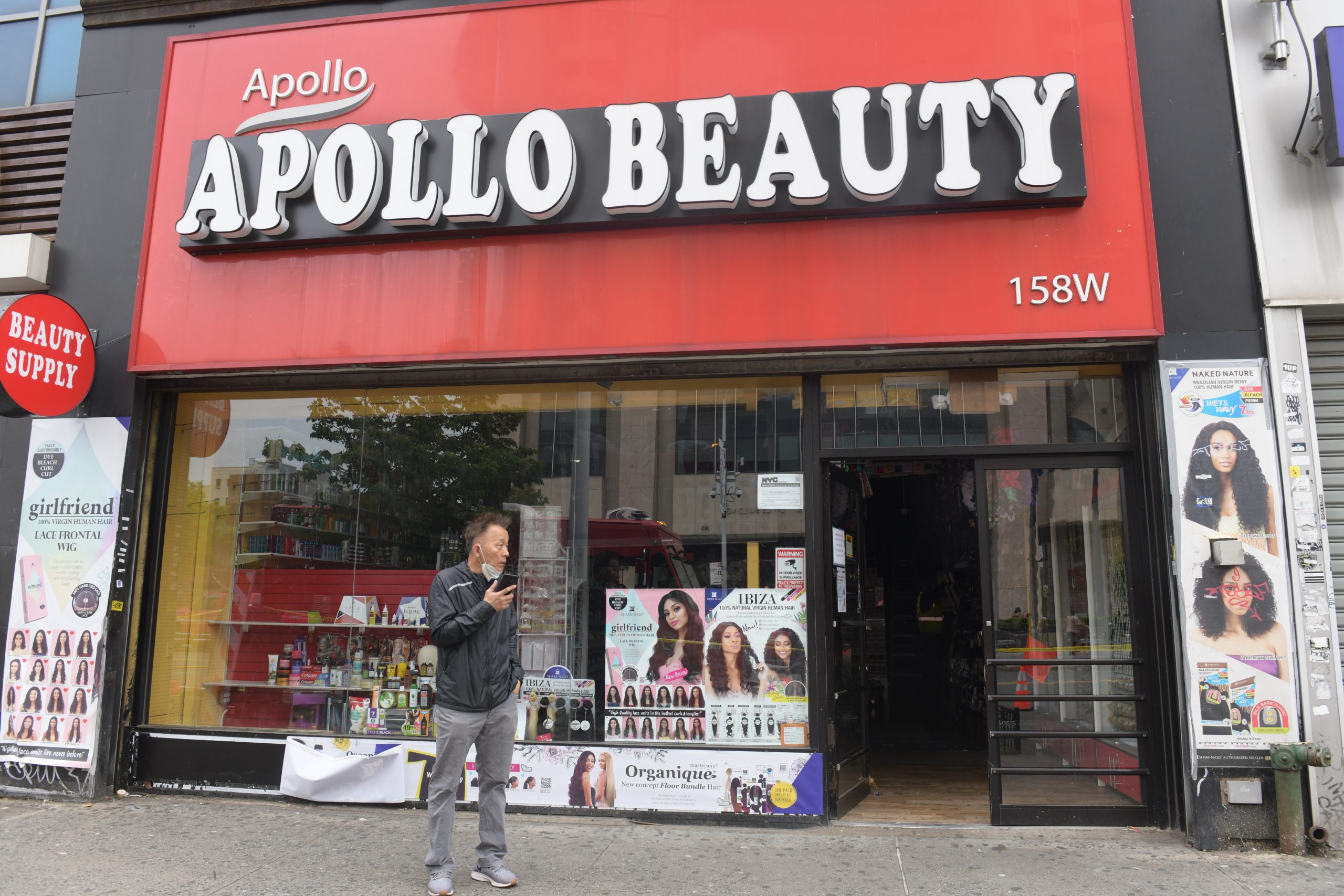
“It’s very clear that up to 40% of local businesses that existed before the COVID shutdown and have closed their doors, will never reopen,” Williams said. “The reality is, if we get a second wave of this pandemic, in the fall – the prime economic months with the holiday seasons – there would be massive devastation of the business community, especially in the sectors of color and it would take decades to recover.”
He also worries that much of the Harlem panache in its tourism industry, restaurants, and the famed Apollo Theater, closed due to the pandemic, might be gone for a while. He said tourism is down more than 90%; it might take years to recover.
Williams’ fear of collapse includes religious institutions, churches that are no longer collecting donations, or are receiving contributions from their absent congregations. “They too have to pay bills, insurance, mortgages – and they are major sources of employment too.”
He said few businesses benefited from Payroll Protection Program loans and SBS loans because 52% of these establishments have eight or fewer people working. he said he is working with city, state, and federal officials to make sure the next round of stimulus helps these mom-and-pop businesses to survive.
Williams added the PPP loans grants for small biz clearly “didn’t go to small business,” charging that large banks such as Wells Fargo and Chase bank filtered out the funds, “gave it to their favorite customers and those they define as small businesses, but not business with fewer than 500 people.”
“The stimulus PPP that doesn’t truly reflect small business in the city, state or around the nation,” Williams said “We fought aggressively to get second stimulus to more community banks, including Carver Bank, Banco Popular, to get money to the businesses cut out in first stimulus. We, got them involved in second stimulus, so we are reaching out to small biz.”
Williams said his staff is fighting for their businesses through Mayor Bill de Blasio, Governor Andrew Cuomo, and Senator Charles Schumer.
“Our role is to be an advocate and our role is to be communicators,” Williams said. “Our role is to make sure we have larger companies, those Fortunate 200, many based in New York, to understand and to step up to help. We going to make sure that our voices are heard in Albany, Washington, and City Hall.”
Williams continued, “What’s happening in our communities is well documented – the impact of this pandemic is disproportionate against people of color, African Americans and Hispanics. we are carrying the major burden of this, when one is talking about, what is happening in downtown Manhattan, it doesn’t mirror the devastation of uptown Manhattan. Our objective is to make sure there is an understanding of the disproportionate impact and get more attention – without survival of these communities, other communities will wither away.”
AMNY’s parent company, Schneps Media, is a member of the Greater Harlem Chamber of Commerce.
